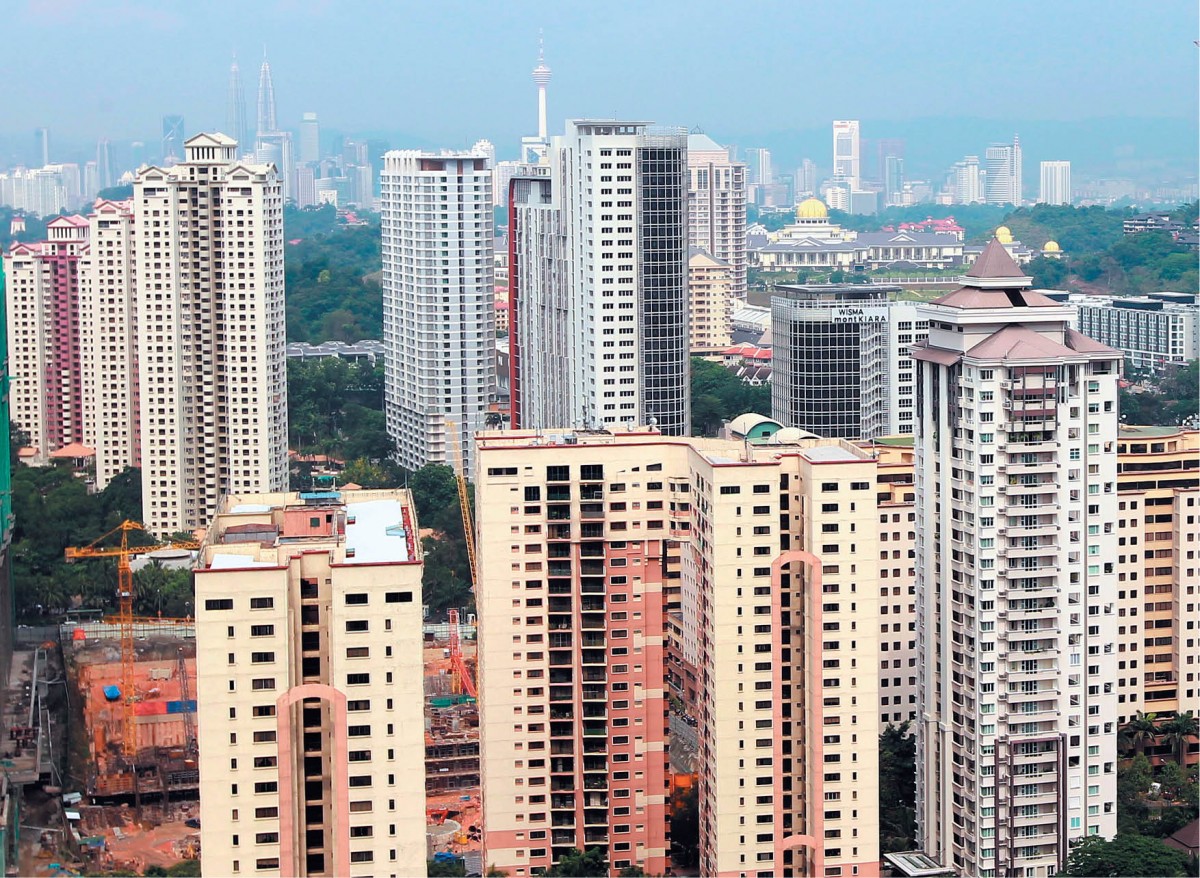JPPH venturing into new frontiers

NEWLY appointed Valuation and Property Services Department (JPPH) director general Dr Rahah Ismail is certainly qualified for the job. Having taken over from Datuk Faizan Abdul Rahman in October last year, Rahah is not only a valuer by training and profession, she also holds a doctorate degree in Housing Development and Finance, a master’s degree in Urban Land Appraisal and a bachelor’s degree in Surveying (Property Management).
“I joined JPPH back in 1980 in Johor. I actually wanted to be a quantity surveyor at that time but my brother advised me to try being a valuer because there were more fields in which I could work in such as in an agency, or along the lines of a consultancy. I took his advice,” recalls Rahah.
Soon after she started working, she realised the need to equip herself even more as a professional in the real estate industry and decided to continue with her studies at a higher level. “I saw that our nation was developing at a very fast pace. I knew I had to keep up with its progress and to do that I would need to keep raising my knowledge and skills. So I decided to pursue my master’s and doctorate degrees after that,” says Rahah, who is also the president of the Board of Valuers, Appraisers and Estate Agents Malaysia (BOVAEA).
Previously, she was the deputy director general of valuation (technical), director of valuation and property services in the states of Johor and Selangor, director of the National Institute of Valuation as well as the chair for the Valuation Practice Committee and the Test of Professional Competency Committee of BOVAEA. She is also a fellow of the Royal Institution of Surveyors Malaysia and the Royal Institute of Chartered Surveyors.
JPPH’s new endeavours
As the new head of JPPH, Rahah certainly has some plans in mind that she would like to realise all with the aim of bringing JPPH’s performance a notch higher. While some of these plans are not new, they are plans that she would need to see through in their implementation.
“One of the things we are currently working on is the cleaning up of housing rental data as we are looking to hopefully start selling them on a transaction basis sometime in April this year, to coincide with the launch of our Property Market Report.
“The thing is, rental data can actually be easily obtained. However, if you want to sell the data to the public, you need to make sure it is quality data so they need refining. We are now working closely with the Inland Revenue Board of Malaysia (IRD) to ensure that the data provided to us is complete with no missing gaps,” she explains.
The department’s source of rental data comes from the stamped tenancy agreements from the IRD. The agreements are supposed to be filled by property owners — in the PDS 49(A) form, either manually or online via the Stamp Assessment and Payment System.
Besides that, Rahah also notes that the government has recognised intellectual property (IP) owned by the government as a new source of wealth for the government, but the problem is, she says, IP is not an asset that can be collateralised.

“We are currently working closely with the Intellectual Property Corporation of Malaysia to pool together IP valuers and business valuers to see how we can monetise these assets.
“We need to collaborate with the right bodies that have this source of information and we have to also bring in the regulatory bodies to monitor IP valuation,” she adds.
Under a restructuring process which commenced in August last year, the immediate past director general, Faizan, had formed an informal division to deal with IP and business valuations. Talks were also initiated with Universiti Malaya about getting IPs from the university valued.
Meanwhile, JPPH is also working with the Malaysian Remote Sensing Agency to conduct geo reference of properties.
“We want to avoid fraud. For instance, certain parties may claim that a property is at a certain location but it is actually not in that location or claim that the building was built 10 years ago but in fact it was never there in the first place. With geo referencing of properties, you can check easily, based on historical data, whether the property was even there in the first place without having to go on the field and this will help a lot when it comes to court cases,” Rahah explains.
“Of course, all of these plans are big plans, but there is a need to start somewhere and to lay out the foundation for the work to progress further,” she adds.
Market recovery
Rahah views 2017 as a year of price consolidation for the property industry and it may hopefully see some market recovery in 2018.
“Ups and downs in the economic environment are nothing unusual. During busy times, everyone just needs to find out where the opportunities are and which markets are still active to bank on. During the 1997 Asian Financial Crisis, there was a lot of noise about overhang units. No doubt those were difficult times, but when I was on the ground visiting developers, some of them told me they were not worried because they were cash rich and they believed the bad times would eventually pass,” she offers.
She notes that such “difficult times” have also seen more developers becoming innovative and coming out with new concepts and new ideas to ride through the storm.
“For instance, developers are coming up with smaller home units to cater to the demand from homebuyers. You have the SoHos (Small-office Home-offices) and SoVos (Small-office Virtual-offices) which have sprouted in the market. Although they may have a higher average price psf, when buyers are looking for affordability in terms of absolute pricing, these types of products may appeal to them,” she says.
According to her, the property market is still very much driven by the residential sector, so the housing market will remain stable as there is always a need for homes.
“Property launches have slowed down with more developers taking a cautious approach so we will see the market consolidating with home prices rising not as drastic as before but at a slower pace. There will be certain housing sectors such as the more affordably priced segment seeing stronger demand while the higher-end housing products will see a slowdown in demand. We will not see a drop in house prices overall, and we are hoping that won’t take place as it will severely affect investors.
“Market recovery will not happen overnight. It needs time, so hopefully we see signs of recovery in 2018,” she offers.
This story first appeared in TheEdgeProperty.com pullout on Feb 17, 2017, which comes with The Edge Financial Daily every Friday. Download TheEdgeProperty.com pullout here for free.
Follow Us
Follow our channels to receive property news updates 24/7 round the clock.
Telegram

Latest publications
Malaysia's Most
Loved Property App
The only property app you need. More than 200,000 sale/rent listings and daily property news.
